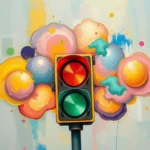
Have you ever woken up from a dream feeling a rush of emotions, but can’t quite put your finger on what it all means? Dreams often leave us puzzled, as if they’re whispering secrets from a hidden part of ourselves. Beyond mere entertainment or oddity, our dreams can hold profound insights into our lives, emotions, and experiences. They serve as a bridge between our conscious and unconscious minds, revealing truths that we may not be ready to confront in our waking life.
In this journey through the dream world, we’ll explore the key symbols that often appear in our dreams, how they relate to our personal experiences, and the potential for growth and transformation that lies within. So, grab a cup of tea, get comfortable, and let’s dive into the enchanting realm of dreams together.
Unraveling Symbols: The Language of the Unconscious
Dream symbols are not mere random images; they are the language through which our unconscious communicates. Each symbol can carry multiple meanings, influenced by our personal experiences, cultural backgrounds, and psychological states. Here are some common dream symbols and their interpretations:
-
Water: Often associated with emotions and the subconscious, water can symbolize the flow of feelings and thoughts. Calm waters may suggest peace, while turbulent waters can indicate emotional turmoil. Consider the state of the water you see in your dreams—what does it reveal about your emotional landscape?
-
Flying: A symbol of freedom and escape, flying in dreams often reflects a desire to rise above challenges or gain a new perspective. It can also indicate a sense of power or liberation. However, if you find yourself struggling to fly, it may suggest feelings of inadequacy or fear of failure.
-
Snakes: Frequently associated with transformation and healing, snakes can also embody fear or anxiety. In many cultures, they represent a duality—while they can evoke fear, they also symbolize rebirth and renewal. What do snakes mean to you? Are they a source of dread, or do they inspire curiosity?
-
Teeth: Dreams of losing teeth often point to feelings of vulnerability, insecurity, or fear of aging. They can symbolize a loss of power or fear of losing control over a situation. When you dream of teeth, what life changes or anxieties are you grappling with?
-
Chase: Being chased in a dream can reflect feelings of stress or pressure in your waking life. It often symbolizes avoidance—something you’re trying to escape or a confrontation you’re not ready to face. Who or what is pursuing you in your dreams, and what might they represent?
Understanding these symbols can unlock doors to deeper self-awareness and help you navigate your feelings and life circumstances. It’s important to reflect on your personal associations with each symbol to uncover their unique meanings in your dreams.
Dreamscapes of Life: Personal Experiences in the Dream World
As we delve deeper into understanding dreams, it’s essential to recognize how our individual experiences shape the narrative of our dreams. Here are a few scenarios that may resonate with you:
-
The Job Interview: You find yourself in a dream where you’re sitting in a room, nervously preparing for a job interview. Suddenly, you forget your answers and feel unprepared. This dream may reflect your anxieties about performance or change in your waking life. What does this dream reveal about your current career challenges or ambitions?
-
Lost in a Maze: You dream that you’re wandering through an intricate maze, unable to find your way out. This could symbolize feelings of confusion or being trapped in a situation. Are there areas in your life where you feel lost or uncertain?
-
Revisiting Childhood Places: In your dream, you find yourself back in your childhood home or school. This scenario often represents nostalgia, unresolved issues from your past, or a desire to reconnect with your roots. What memories or feelings are being stirred by this return?
-
Falling: You dream of falling from a great height, only to wake just before hitting the ground. Falling dreams often symbolize feelings of insecurity or a lack of control in your waking life. What situations are making you feel vulnerable, and how can you regain a sense of stability?
-
Meeting a Celebrity: You find yourself having an engaging conversation with a famous figure. Such dreams can symbolize aspirations, desires for recognition, or aspects of yourself that you admire. What qualities do you see in that celebrity, and how can you integrate those into your life?
Each of these scenarios reflects the complex interplay between our experiences and our subconscious mind. By recognizing the themes in your dreams, you can gain insight into your emotions and motivations, allowing for a more profound understanding of yourself.
Awakening Potential: Dreams as Catalysts for Growth
Dreams can serve as powerful catalysts for personal growth and transformation. They often reflect our innermost desires, fears, and unresolved issues, urging us to confront them. Here are some insights on how to use your dreams for personal development:
-
Keep a Dream Journal: Writing down your dreams as soon as you wake up can help you retain the details and emotions tied to them. Over time, you may notice patterns or recurring themes that can guide your self-discovery journey. What insights emerge when you reflect on your dreams regularly?
-
Practice Lucid Dreaming: Learning to become aware that you’re dreaming while in the dream can grant you a sense of control over the narrative. This practice allows you to confront fears or explore desires within the safe space of your dream. What would you do if you had the power to shape your dreams?
-
Engage in Active Imagination: This psychological technique invites you to explore your dreams further. Choose a symbol or character from your dream and engage in a dialogue with it. What do they want to tell you? This can lead to deeper insights into your subconscious mind. How can these conversations help you understand your feelings and motivations?
-
Use Dreams for Problem Solving: Sometimes dreams provide solutions or insights into challenges you’re facing. Before going to bed, focus on a specific question or problem. Upon waking, reflect on any dream imagery that could offer guidance. What wisdom can your dreams impart on your current dilemmas?
-
Embrace the Messiness: Understand that not all dreams will make sense, and that’s okay. Sometimes, dreams are chaotic and fragmented, reflecting the complexities of life. Allow yourself to sit with the confusion and trust that clarity will come in time. What lessons can you learn from the chaos in your dreams?
By embracing your dreams and their messages, you can embark on a journey of self-discovery and growth. They can illuminate hidden aspects of your psyche, encouraging you to confront your fears, desires, and aspirations.
In conclusion, dreams are not just fleeting images or random thoughts; they are gateways to understanding our inner selves. By engaging with the symbols, experiences, and potential for growth that our dreams offer, we can unlock the secrets of our unconscious minds. So, the next time you wake up from a vivid dream, take a moment to reflect on its meaning. What insights can you glean, and how can you use them to enhance your life? Remember, your dreams are a part of you—embrace them, learn from them, and let them guide you on your journey.
What hidden wisdom might your dreams hold for you today?







